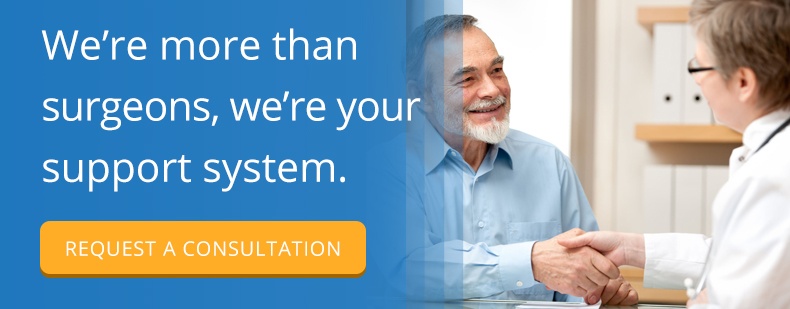You can plan for many things during your lifetime, but no one expects to receive a diagnosis of brain cancer. It’s great that you have chosen to learn more about your condition and potential brain cancer treatment options. Empowering yourself with knowledge will help you play a more active role in your healthcare and give you some peace of mind as to what happens next.
You undoubtedly have many questions about what to expect now that you were just diagnosed with brain cancer. While your doctor will be able to address many of these for you, the following information will help you have a better understanding of next steps to take, including potential treatment options and lifestyle modifications you may anticipate.
Coping With the News
The first step after you have you are just diagnosed with brain cancer is to process and digest the news and what it means for you. The most important thing is to remember that no matter what, you are not in this alone. Reach out to those around you – friends, family, coworkers and even your doctor – for support during this process.
You may also wish to seek out other patients who have brain cancer. Your doctor may be able to refer you to a group in your community where people come together to share their experiences, or you may prefer the anonymity an online support community provides. Either way, hearing what other people are going through can validate your own experiences and provide a sense of camaraderie through your treatment process, and many people find that incredibly helpful.
Treatment Options
Following your brain cancer diagnosis, your doctor will begin to discuss potential treatment options with you. Because there are many types of brain cancer, each requiring its own treatment approach, you will need to discuss your exact treatment path with your doctor. This will be based on the type of brain cancer you have, as well as its size, location and your individual health factors.
However, generally speaking, there are three main types of treatment used to treat brain cancers. Some respond to one therapy better than others, while others may require a combined treatment approach. Your doctor will recommend the most appropriate treatment regimen for you and your personal condition.
One treatment option is open surgery to remove as much of your tumor as possible. For some patients, this may include removing the entire tumor. Sometimes a tumor has spread into nearby tissues or is in a particularly delicate area and is impossible to remove completely. In this case, your doctor will recommend follow-up therapy to ensure complete eradication of the brain cancer cells.
Many patients will benefit from radiation therapy. This may be delivered using a whole-brain approach, where you undergo multiple sessions of low-dose radiation to the entire brain. Other patients may instead receive fractionated therapy, which uses higher doses of radiation in a more focused area, targeting your tumor more specifically. Radiation therapy is almost always used following surgery to eliminate any remaining tumor cells unless your doctor determines you cannot tolerate the radiation dose.
Finally, some brain cancers respond well to chemotherapy, which is the use of medication to target cancer cells. For example, patients with glioblastoma multiforme are typically prescribed temozolomide (Temodar), an oral medication that is generally well-tolerated. However, because of the body’s natural defense known as the blood-brain barrier, some medications are unable to get to the tumor site to treat the cancer. This is why not all patients will have chemotherapy included as part of their treatment plan.
Lifestyle Changes
Following your brain cancer treatment, you can expect to have regular follow-up visits with your doctor to monitor for any recurrence of your brain tumor. This will include periodic diagnostic imaging, such as MRIs and/or CT scans. It’s important that you maintain your follow-up appointments even if you are feeling better to ensure any recurrent brain tumor is caught as soon as possible.
In addition, your doctor may recommend healthy lifestyle changes, such as smoking cessation, exercising regularly, maintaining a healthy weight and eating nutritious foods. While these have not been directly linked to preventing your brain cancer from coming back, they can definitely have a positive impact on your overall health.
Trust Your Healthcare Team
You were just diagnosed with brain cancer, but you have a world of people around you who are there to help you through this. Reach out to your family, friends or even anonymous people online who share your condition and allow them to walk beside you through this journey. You are strong, but that doesn’t mean you have to tackle this alone.
If you still have any questions regarding your next steps following your diagnosis, be sure to bring them up with your doctor at your next appointment. Take what you’ve learned here forward into your discussion, and continue learning more about your brain cancer and treatment options. The more comfortable you are with your treatment, the more peace of mind you will have through the process.


